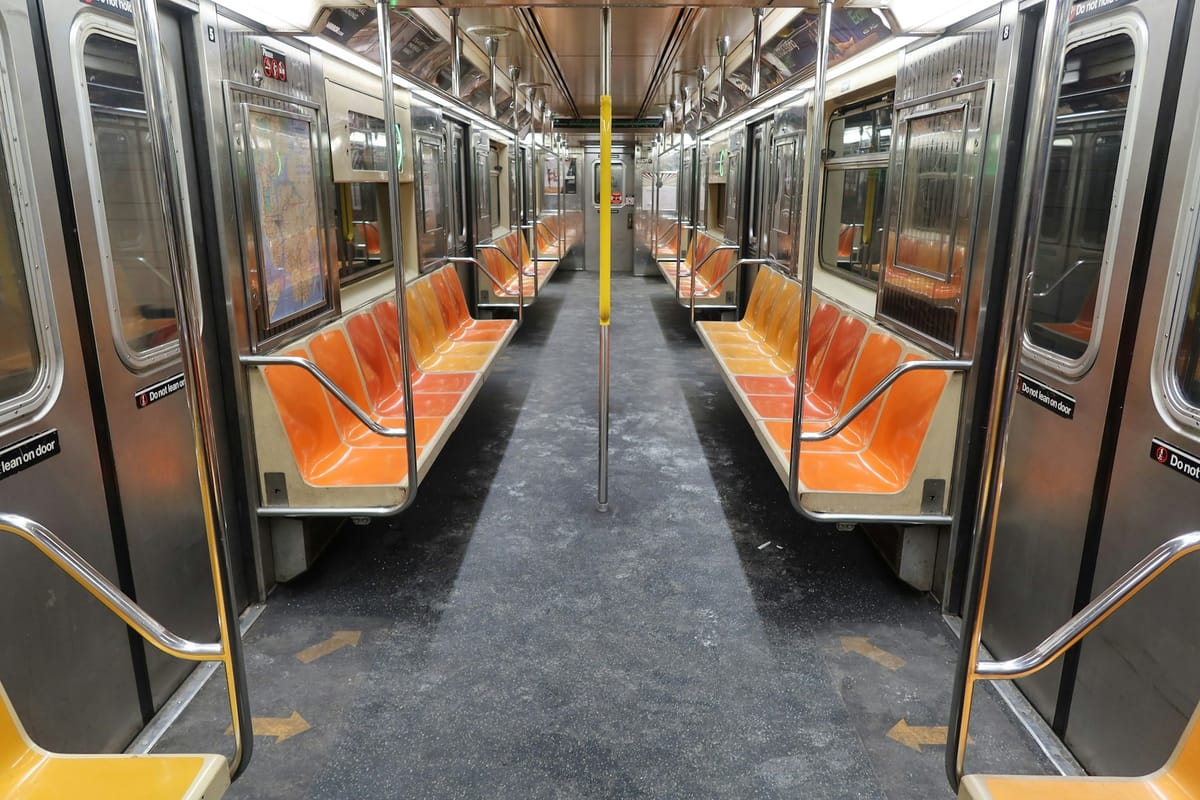WFH and Missing My Commute

Recently, I was talking to an old-colleague-turned-friend of mine, and I asked her how things were going on her end. She mentioned that all things considered, she was doing alright, and that in that moment, as she was getting up to get some coffee, she had an important realization: she could work from home forever. In fact, she was dreading the return to the office environment.
What I found interesting is that she wasn’t the only person to mention a similar sentiment about their work to me. My girlfriend has repeatedly said the same thing, that she loves the flexibility that comes with working from home, including the extra hour of sleep she now has in the morning, and that she can work without too much distraction.
And it seems like many companies are starting to take notice of this, and realize that the majority, if not all, of their employees can work just as if not more effectively from home than they can in the office. Jack Dorsey, CEO of Twitter, and Tobi Lutke, CEO of Shopify, both issued statements that they are moving their companies entirely to remote work/work-from-home situations effectively immediately.
As of today, Shopify is a digital by default company. We will keep our offices closed until 2021 so that we can rework them for this new reality. And after that, most will permanently work remotely. Office centricity is over.— Tobi Lutke 🌳🌲🛒🕹 (@tobi) May 21, 2020
All of this is to say that I too had my own realization over the last few days; I miss my commute.
Let me explain.
There are plenty of studies that explain why commuting is bad for you, from how it leads to a more sedentary lifestyle, increased stress levels, and how it can leave you emotionally, physically, and mentally drained. I’ve certainly experienced my fair share of this, and while all of this has been proven time and time again, I think there are some very tangible benefits to commuting as well.
For me, whether it was driving 45 minutes to work or taking 2 trains over an hour and 20 minutes, I’ve always had a long commute. Despite delays due to bad weather or accidents on the road causing backups for kilometers on end, I found that the time spent traveling to and from work was incredibly valuable to me. Most importantly, I think, is that commuting served as a period of transition for me. I think that Sundar Pichai, CEO of Google, said it best during his last interview on The Vergecast, where he said,
“I miss transitions giving me a chance to drive and think about stuff and process...I miss that space to think quietly.”
Just like there are different styles to learning, I think that there are different ways to work. Some people, like my girlfriend and colleague-turned-friend, are more productive working from home. For me, I’ve always been more productive when I have a space outside the home that’s dedicated to work. When I would commute, I automatically had two chunks of my day carved out for me to serve as that transitionary period. In actively changing the scenery around me and entering a space that was specifically designed for work, I was able to trick my brain into not following the path of least resistance and actually spend the necessary time to get what I needed to get done, done.
That period of transition is also a great way to simply let your mind wander. I’ve found that it’s lead to momentary sparks of creativity and have even unexpectedly solved a knotty problem at work by connecting two seemingly disparate ideas I may not have otherwise connected. The Harvard Business School even ran a small experiment where they had trainee IT workers spend 15 minutes of reflection at the end of the day, and at the end of their course, those that did ended up performing 20% better than people who had spent that period on additional active practice.
Now, it’s reasonable to assume that you can do this at home just as easily as you can on a commute. Reflection and commuting are not mutually exclusive activities, but for me, it effectively served as a forced mental break at the start and end of my work day, and gave me a chance to catch up with friends, listen to my never ending backlog of podcasts, or read a book, and to transition in and out of my work mode.
It’s clear that work-from-home is here to stay. The benefits are abundant, but I think that the office still holds some relevance and importance. Tools like Slack and Zoom have stepped-up to fill in a crucial communications gap, but that doesn’t replace the real, tangible benefits that come with interacting with people in the same physical space. Collaboration just isn’t the same when it’s done through a screen. Stuart Butterfield, CEO of Slack, said the following in this week’s interview episode of The Vergecast:
“So there’s a degree to which we’ve got to stay in line with the market, but I’m also excited about, personally, reimagining what that physical space is for. Because we spend an extraordinary amount of money, and those offices exist principally to facilitate people sitting at desks using computers. Whereas they could exist principally to allow for more effective collaboration, which means a bigger variety of spaces more dedicated toward meetings, a smaller number of fixed desks, and the expectation that if you already have this giant list of work, and you just have to plow through it, then stay home. And when it’s time to do the roadmapping session to get together with the team and think about what you want to do next, then come to the office.And then once you have your work cut out for you, you can go back home.”
I think that knowing what each space is meant for is so crucially important. The era of going into the office and sitting as a specific desk that’s entirely yours is over. While I do miss my commute, and being in the same space as my colleagues (and the break it gave me from work and other responsibilities that I have in life), I don’t necessarily want to go back to doing it every day.
Whether the need is to collaborate in the same physical space or to just get that much needed change of environment, I think that the future of work will be a blend of both working remotely and commuting into the office when there’s a need to. And if that ends up with a better work-life balance, more time left for things we want to be doing, and the occasional transitional trip into the office, I’m okay with that.




